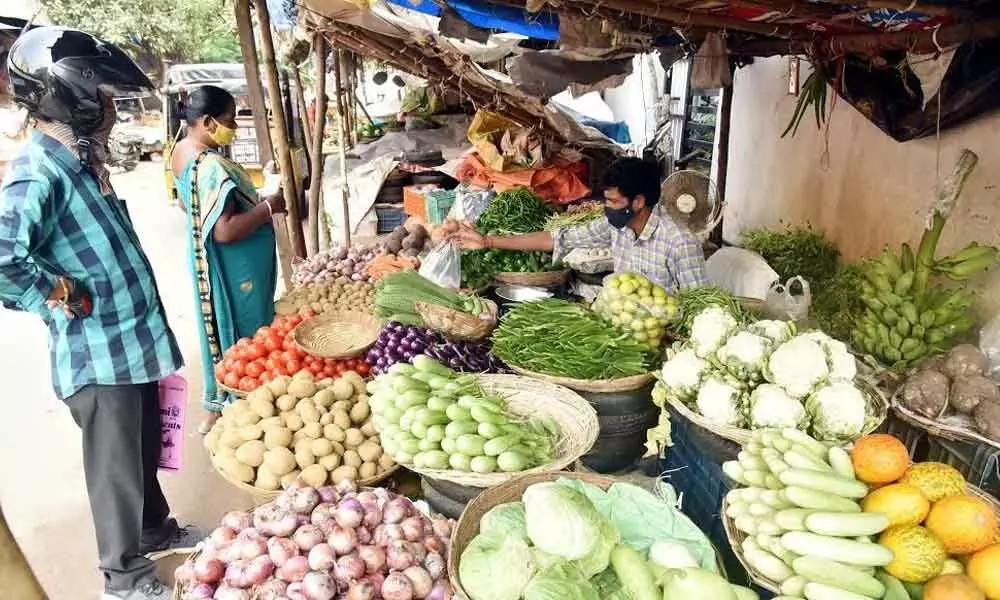Visakhapatnam: A bag of veggies turns out to be pricey

Vegetables on sale at Seethampeta in Visakhapatnam -Photo: A Pydiraju
- Price of a kg of onions varies from `65 to `75
- While kg capsicum costs `60, the price of carrot increased to `52
- For a kg of onions, tomatoes and potatoes, one needs to shell out not less than `130 in Rythu Bazaars and the same cost `200 in open market
Visakhapatnam: A kilo of onions is Rs 65, tomatoes Rs 26, carrot Rs 52, capsicum Rs 60, potatoes Rs 38 and ivy gourd Rs 32 and the list goes on.
Bringing home a bag of veggies turns out to be quite pricey for the past couple of weeks in the city.
A month back, onions and tomatoes skyrocketed. Though the rate of tomatoes has come down to an extent, the price of onions remains hovering between Rs 65 and Rs 75.
While the veggies rates get out of reach for the poor and the middle class in Rythu Bazaars, the cost of each variety is almost doubled in open markets.
Even a kg of onions, tomatoes and potatoes which are considered to be kitchen staples turn out to be expensive as one needs to shell out not less than Rs 130 in Rythu Bazaars and Rs 200 in case of open market to access them. Since the quality of veggies available in Rythu Bazaars may not match up to the standards, many are dependent on the retail outlets to meet their daily requirements.
Earlier, if one invests Rs 500 in vegetables, the quantity used to be sufficient to meet week-long cooking needs. Now, not even three days would last with the same amount spent.
Attributing the hike in price of vegetables to heavy rains and subsequent crop damage, Assistant Director of Marketing Department M Kaleswara Rao says that the situation is unlikely to improve till January. "Stocks from Rambhadrapuram, Madanapalle, Tadepalligudem, Maharashtra and West Bengal are rarely arriving as a majority of crops were washed away due to heavy rains.
Similar situation is expected to continue for the next two months until the local crops come to our rescue," he explains.Of all, middle class families are the worst hit. On one hand, they need to deal with stricter budgets; job insecurity and ever-increasing prices of essential supplies are the other challenges that continue to trouble them on the other.















